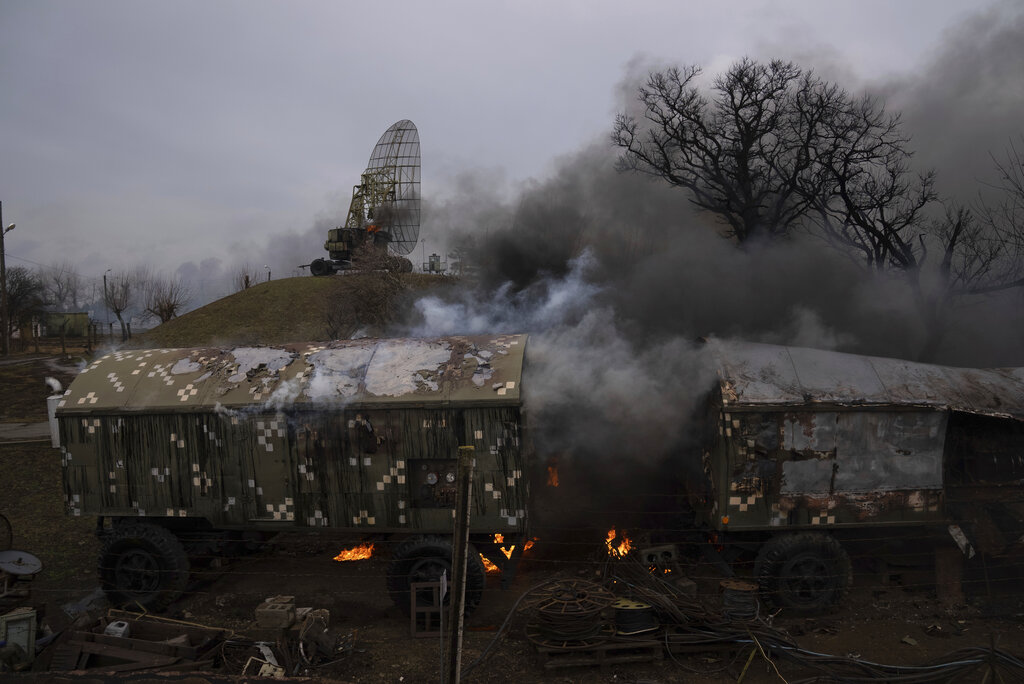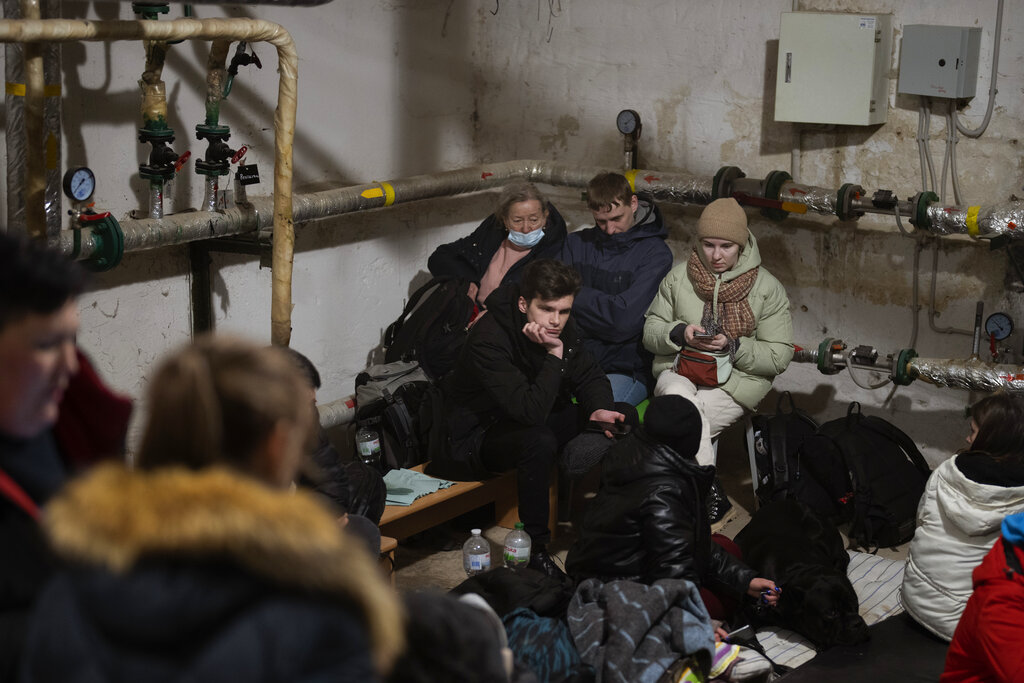As recently as Monday, the parents of St. Thomas theology professor Paul Gavrilyuk lived in the Ukrainian capital of Kyiv. After learning about the likelihood of a Russian attack on the city, he and his brother convinced them to move about 50 miles away from the capital.
“(My parents) remain very close to the area that is going to be probably the center of Russian attack,” said Gavrilyuk, who moved to America from Ukraine in 1993 after spending five years studying in Russia.
Gavrilyuk continued by saying that Russian President Vladimir Putin “wants to decapitate the government.”
While Gavrilyuk was able to get his parents out of Kyiv before gunfire and explosions rocked the city, he joined the rest of the St. Thomas community in watching the Russian invasion that began midweek after nearly a month of back and forth between Putin, world leaders and Ukraine. Gavrilyuk said that there is “no justification whatsoever” for Russia’s invasion, which Putin claimed Wednesday was needed to protect civilians in eastern Ukraine.
“The false implication being that somehow this is a war of defense, and of course, it is a blatant order of offense,” Gavrilyuk said. “Putin wants to enter history as a war criminal.”
Gavrilyuk said he was outraged at Putin’s actions and that “there is a sense in which he presently opposes the rest of the civilized world.”
Other Ukrainians in Minnesota watched the events unfold, horrified over what the invasion could mean for Ukraine’s independence.
“I was heartbroken (Tuesday) night when I heard that there were explosions and troops on the ground,” second generation Ukrainian and sophomore Rae Karkoc said. “The existence of a free and independent Ukraine is against the idea of Russian government.”
Both Karkoc and Gavrilyuk highlighted past actions of the Soviet and Russian governments against the Ukrainian people.
Karkoc pointed to the great famine of Holodomor from 1932-33 in which Soviet leader Joseph Stalin created a famine that killed a large portion of Ukrainians; Karkoc, and many countries, considers the event a genocide.
“The USSR wanted to destroy any knowledge or existence of Ukrainian culture. Get rid of the language, make it illegal to speak and learn and write,” Karkoc said. “The fact that it’s a country that actively perpetrated genocide against my people and is seeking to maintain and overthrow power against us is, I think a really important thing to acknowledge.”
While Karkoc spoke of Holodomor, Gavrilyuk noted Russia’s invasion violates the 2015 Minsk Agreement, which was meant to stop fighting in Donbas, a southeast region of Ukraine. Gavrilyuk also said Russia has violated the 1994 Budapest Memorandum, which was put in place to provide security assurances to Ukraine and other countries in exchange for Ukraine giving up its nuclear arsenal, which was the third-largest in the world at the time.
“Russia has just blatantly violated that agreement just as it has also completely torn apart the Minsk agreement,” Gavrilyuk said.
Gavrilyuk added that Ukraine has fought for its independence from Russia, despite being a part of the Soviet Union.
“Ninety-two percent of Ukrainians in 1991, voted for the independence of their state, for the cessation of Ukraine from the Soviet Union, and first and foremost, from the Soviet Russia,” Gavrilyuk said.
Karkoc echoed this message and said the fight for Ukrainian independence has gone on for decades.
“My father and my aunt were – when they were my age – protesting for a free and independent Ukraine,” Karkoc said. “We have our own flag; we have our own food traditions, everything. We are our own people; we are not Russian.”
Some citizens of Russia have protested the invasion of Ukraine with chants like “no to war” being heard in Moscow and St. Petersburg. On Thursday night 1,820 demonstrators were detained in 58 Russian cities, according to OVD-Info. Gavrilyuk hopes that the citizens of Russia are able to protest the invasion and stand up against Putin.
“Putin is able to do what he’s doing today because at this moment his propaganda machine and also the complacency of his population allows him to do it,” Gavrilyuk said. ”He’s afraid of even three people protesting against him in the middle of St. Petersburg or Moscow, and he feels the need to suppress peaceful demonstrations.”
Though Gavrilyuk is fearful of what is currently happening in Ukraine, he can’t help but want to be home.
“My impulse is to be in Ukraine now,” Gavrilyuk said. “The question for me is principally, how can I be most useful and … make my own very, very modest contribution to the process.”
While Gavrilyuk searches for what he can do to contribute to his home country, he asked that people pray for the people he once spent every day with. Karkoc is holding onto hope that Ukraine and its citizens will be OK.
“I hope with all my heart (Ukrainians) come out on top and that they do everything they can, in one way or another, to ensure the continuation of Ukraine as a culture and as a sovereign nation,” Karkoc said.
Scout Mason can be reached at maso7275@stthomas.edu.
Cam Kauffman contributed to this report.
The Associated Press contributed to this report.












